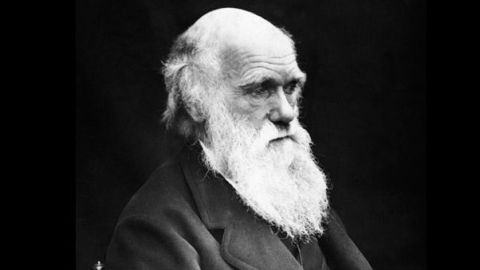What Darwin Can Teach Us About Leadership

“What are the fundamental roots of our behavior as human beings,” asks Harvard Business School professor Paul Lawrence. This is a huge question to be sure, but Lawrence has a new theory that seeks to answer just that. Called Renewed Darwinian Theory, it draws from largely forgotten theories from the father of evolution. “I was lucky enough to discover that Darwin built quite a good deal about human behavior at this level of basics that has been amazingly ignored by the academics,” he says.
In his Big Think interview, Lawrence explains to us that, while natural selection is motivated solely by the desire to pass on one’s genes, human behavior is more complicated than that; humans are motivated by four essential drives, he says. And the confluence of these (sometimes conflicting) drives together act to shape behavior.
Lawrence’s four-drive theory of behavior can also be applied in to leadership. Good leaders are ones who take into account all four drives, not just the desire to acquire. Leaders would be wise to think of the Golden Rule—do unto others as you would have them do unto you—but in context of these four drives. “With four drives, we could say, I’ve got the four drives in my brain and that tells me what I’m driving for,” he says. “But the other person I’m talking to has the same ones. And if I want to be a trusted friend who is worked with closely and engaged with in a truthful way, I’ve got to help them fulfill their four drives. Then we can bond, really.”
Lawrence’s theory has specific applications in the business world as well. Distrust is an enemy to productivity, and acknowledging the four drives within the workplace can help to combat it. Renewed Darwinian Theory can help “build a structure of trust throughout your organization which will enable people to cooperate much more readily with each other without having to build up defensive systems just in case the other guy double crosses them—which is in the back of minds when they have distrust,” Lawrence says.
Unfortunately, all leaders don’t practice this theory. In fact, a disproportionate amount of leaders are sociopaths, people who are born without a drive to bond with other people. Though this applies to only 2-4% of the population, Lawrence estimates that 8-10% of people in positions of power are such people. Far from coming across as evil, these sociopaths can often climb to positions of power because they are often “quite charming.” We just need to look to the recent Wall Street crisis to see this at work, he says.





